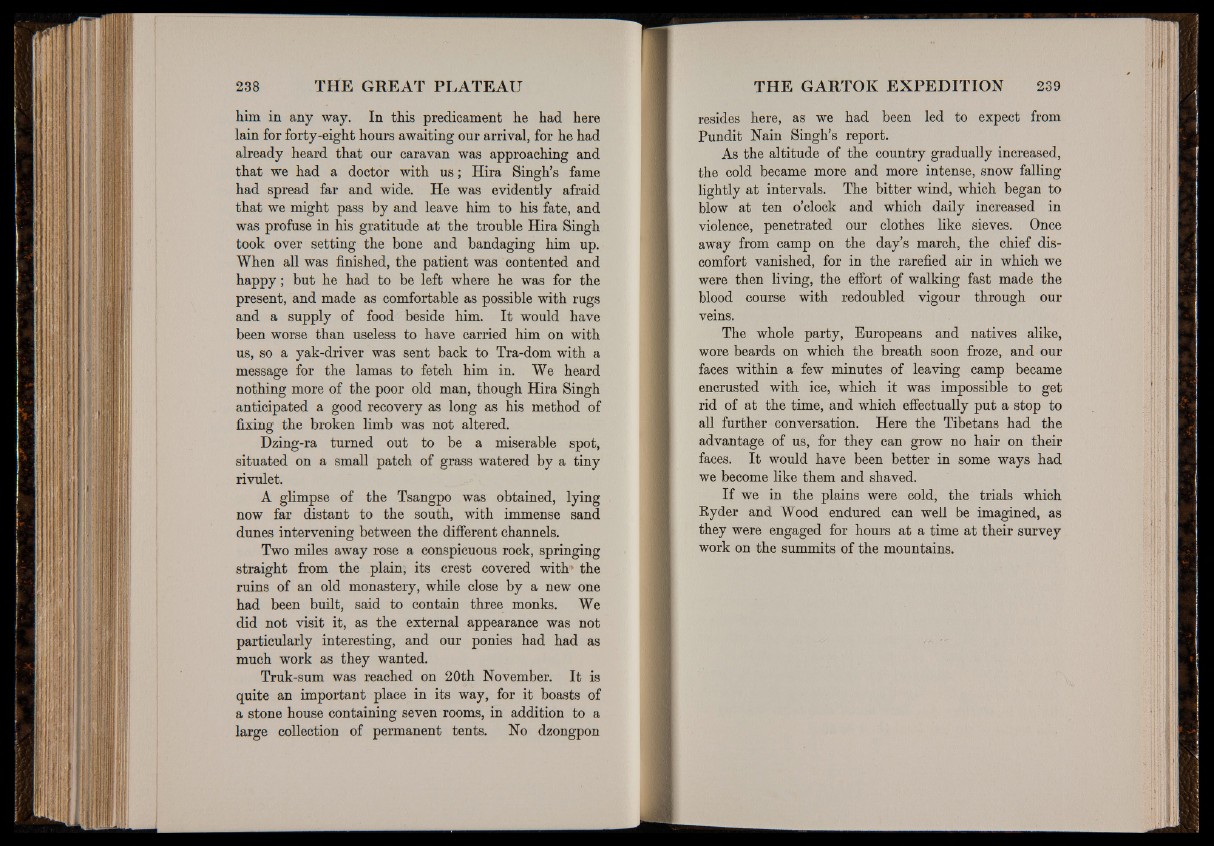
him in any way. In this predicament he had here
lain for forty-eight hours awaiting our arrival, for he had
already heard that our caravan was approaching and
that we had a doctor with u s ; Hira Singh’s fame
had spread far and wide. He was evidently afraid
that we might pass by and leave him to his fate, and
was profuse in his gratitude at the trouble Hira Singh
took over setting the bone and bandaging him up.
When all was finished, the patient was contented and
happy; but he had to be left where he was for the
present, and made as comfortable as possible with rugs
and a supply of food beside him. It would have
been worse than useless to have carried him on with
us, so a yak-driver was sent back to Tra-dom with a
message for the lamas to fetch him in. We heard
nothing more of the poor old man, though Hira Singh
anticipated a good recovery as long as his method of
fixing the broken limb was not altered.
Dzing-ra turned out to be a miserable spot,
situated on a small patch of grass watered by a tiny
rivulet.
A glimpse of the Tsangpo was obtained, lying
now far distant to the south, with immense sand
dunes intervening between the different channels.
Two miles away rose a conspicuous rock, springing
straight from the plain, its crest covered with* the
ruins of an old monastery, while close by a new one
had been built, said to contain three monks. We
did not visit it, as the external appearance was not
particularly interesting, and our ponies had had as
much work as they wanted.
Truk-sum was reached on 20th November. It is
quite an important place in its way, for it boasts of
a stone house containing seven rooms, in addition to a
large collection of permanent tents. No dzongpon
resides here, as we had been led to expect from
Pundit Nain Singh’s report.
As the altitude of the country gradually increased,
the cold became more and more intense, snow falling
lightly at intervals. The bitter wind, which began to
blow at ten o’clock and which daily increased in
violence, penetrated our clothes like sieves. Once
away from camp on the day’s march, the chief discomfort
vanished, for in the rarefied air in which we
were then living, the effort of walking fast made the
blood course with redoubled vigour through our
veins.
The whole party, Europeans and natives alike,
wore beards on which the breath soon froze, and our
faces within a few minutes of leaving camp became
encrusted with ice, which it was impossible to get
rid of at the time, and which effectually put a stop to
all further conversation. Here the Tibetans had the
advantage of us, for they can grow no hair on their
faces. I t would have been better in some ways had
we become like them and shaved.
If we in the plains were cold, the trials which
Ryder and Wood endured can well be imagined, as
they were engaged for hours at a time at their survey
work on the summits of the mountains.